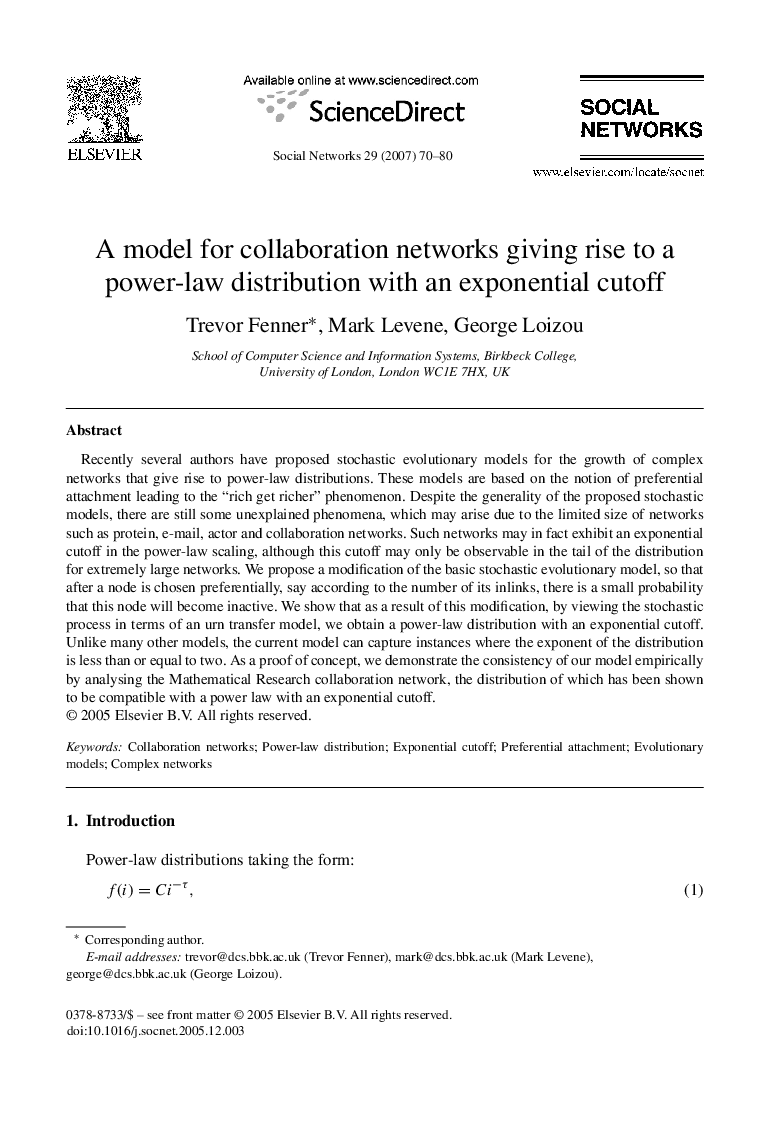| Article ID | Journal | Published Year | Pages | File Type |
|---|---|---|---|---|
| 1129577 | Social Networks | 2007 | 11 Pages |
Recently several authors have proposed stochastic evolutionary models for the growth of complex networks that give rise to power-law distributions. These models are based on the notion of preferential attachment leading to the “rich get richer” phenomenon. Despite the generality of the proposed stochastic models, there are still some unexplained phenomena, which may arise due to the limited size of networks such as protein, e-mail, actor and collaboration networks. Such networks may in fact exhibit an exponential cutoff in the power-law scaling, although this cutoff may only be observable in the tail of the distribution for extremely large networks. We propose a modification of the basic stochastic evolutionary model, so that after a node is chosen preferentially, say according to the number of its inlinks, there is a small probability that this node will become inactive. We show that as a result of this modification, by viewing the stochastic process in terms of an urn transfer model, we obtain a power-law distribution with an exponential cutoff. Unlike many other models, the current model can capture instances where the exponent of the distribution is less than or equal to two. As a proof of concept, we demonstrate the consistency of our model empirically by analysing the Mathematical Research collaboration network, the distribution of which has been shown to be compatible with a power law with an exponential cutoff.
